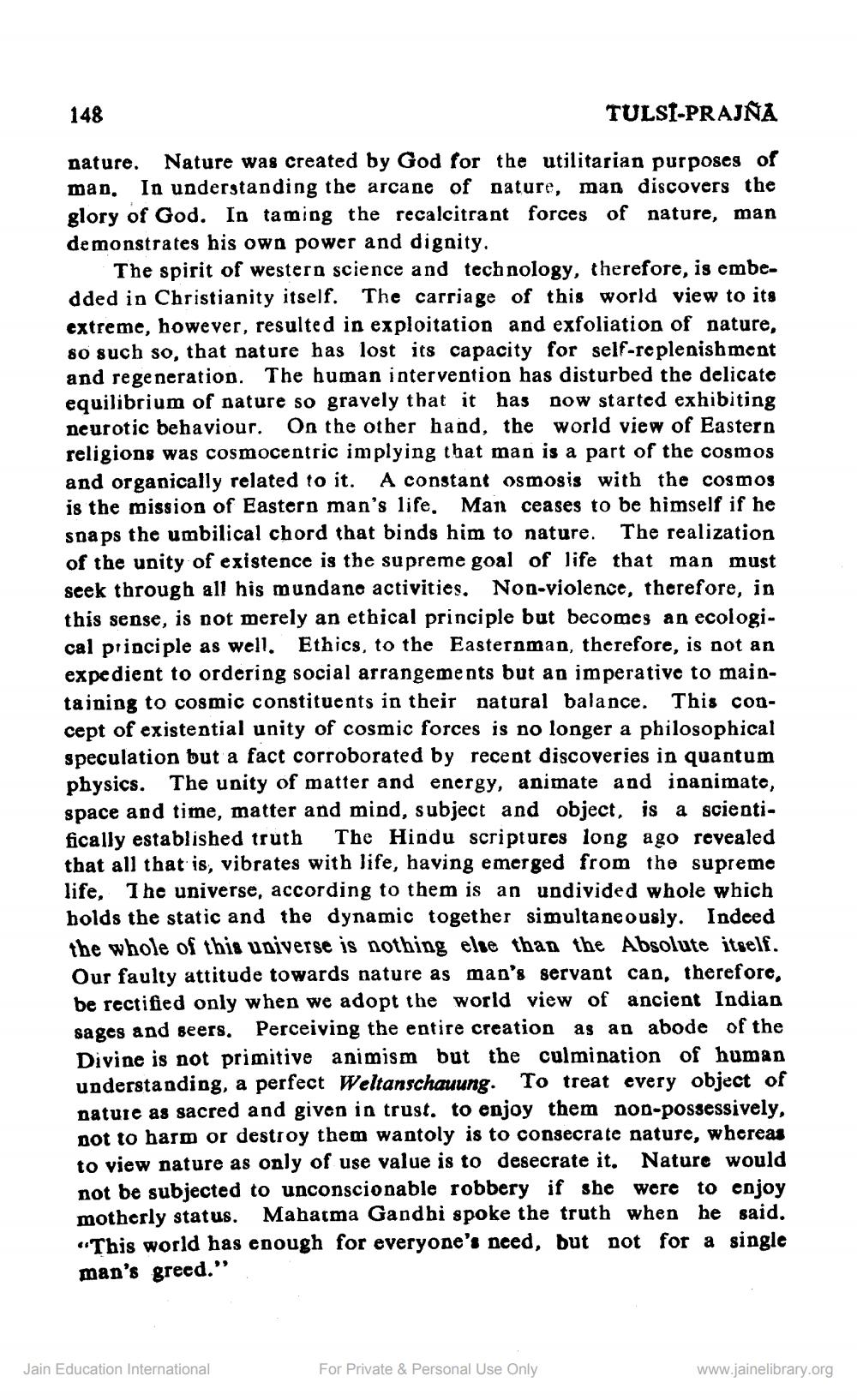________________
TULSI-PRAJŇA
nature. Nature was created by God for the utilitarian purposes of man. In understanding the arcane of nature, man discovers the glory of God. In taming the recalcitrant forces of nature, man demonstrates his own power and dignity.
The spirit of western science and technology, therefore, is embedded in Christianity itself. The carriage of this world view to its extreme, however, resulted in exploitation and exfoliation of nature, so such so, that nature has lost its capacity for self-replenishment and regeneration. The human intervention has disturbed the delicate equilibrium of nature so gravely that it has now started exhibiting neurotic behaviour. On the other hand, the world view of Eastern religions was cosmocentric implying that man is a part of the cosmos and organically related to it. A constant osmosis with the cosmos is the mission of Eastern man's life. Man ceases to be himself if he snaps the umbilical chord that binds him to nature. The realization of the unity of existence is the supreme goal of life that man must seek through all his mundane activities. Non-violence, therefore, in this sense, is not merely an ethical principle but becomes an ecological principle as well. Ethics, to the Easternman, therefore, is not an expedient to ordering social arrangements but an imperative to maintaining to cosmic constituents in their natural balance. This concept of existential unity of cosmic forces is no longer a philosophical speculation but a fact corroborated by recent discoveries in quantum physics. The unity of matter and energy, animate and inanimate, space and time, matter and mind, subject and object, is a scientifically established truth The Hindu scriptures long ago revealed that all that is, vibrates with life, having emerged from the supreme life, The universe, according to them is an undivided whole which holds the static and the dynamic together simultaneously. Indeed the whole of this universe is nothing else than the Absolute itself. Our faulty attitude towards nature as man's servant can, therefore, be rectified only when we adopt the world view of ancient Indian sages and seers. Perceiving the entire creation as an abode of the Divine is not primitive animism but the culmination of human understanding, a perfect Weltanschauung. To treat every object of nature as sacred and given in trust. to enjoy them non-possessively, not to harm or destroy them wantoly is to consecrate nature, whereas to view nature as only of use value is to desecrate it. Nature would not be subjected to unconscionable robbery if she motherly status. Mahatma Gandhi spoke the truth "This world has enough for everyone's need, but not for a single man's greed."
were to enjoy when he said.
148
Jain Education International
For Private & Personal Use Only
www.jainelibrary.org




